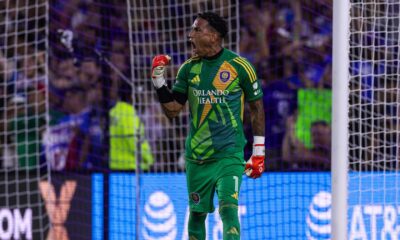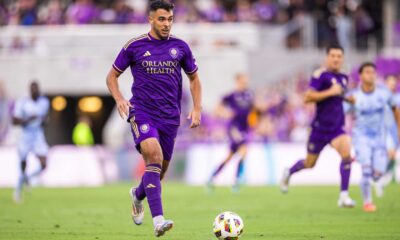Orlando City
Orlando City vs. Houston Dynamo: Final Score 4-0 as Tired Legs and Too Much Speed Dooms Lions
In a match that saw a number of changes from Orlando’s side, City never found a way into a game dominated by the Dynamo.
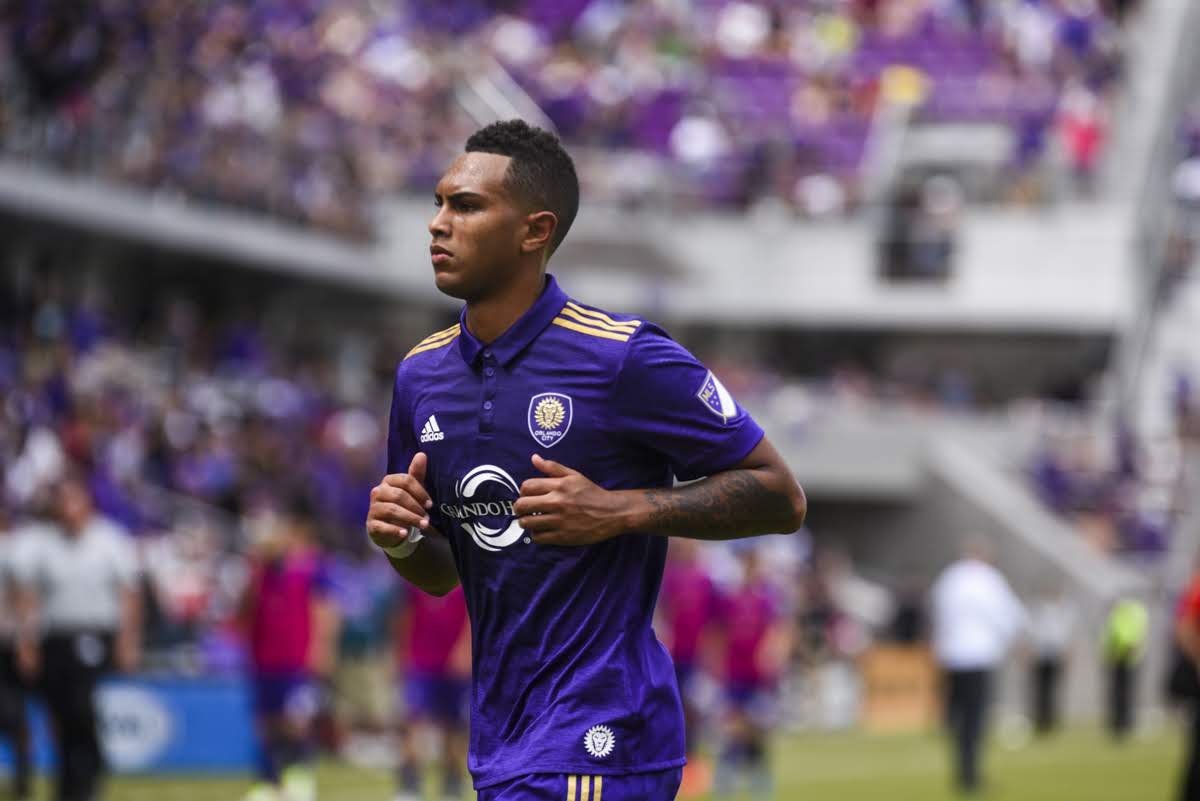
The speed of the Houston Dynamo and the tired legs of the Lions were a bad combination, as Orlando City was blown out, 4-0, at BBVA Compass Stadium. The club suffered consecutive losses for the first time all season, after dropping both matches on its two-game road trip. Alberth Elis, Mauro Manotas (twice), and Romell Quioto provided the goals for Houston.
Orlando City (6-3-0, 18 points) played away to Houston (5-3-1, 16 points) for its third game in just eight days and second game in as many time zones just three days apart, and despite squad rotation, the Lions looked tired and slow throughout the match.
Jason Kreis made several changes, dropping Kaká and Carlos Rivas from the starting lineup and dropping Jonathan Spector from the 18. Giles Barnes started up top with Cyle Larin, atop a midfield of Antonio Nocerino at the bottom of the diamond, Luis Gil and Will Johnson on the wings, and Matias Perez Garcia at the tip. The back line consisted of Donny Toia, Tommy Redding, Jose Aja — in his return to the field — and Scott Sutter.
One noticeable name out of the starting XI for Houston was Cubo Torres, the league’s leading goal scorer. Houston wouldn’t need him.
The Dynamo were able to take advantage early, as they earned a corner kick in the first three minutes and were inside the 18 with the ball three times in that same time frame but were unable to test the MLS Player of the Month for April, Joe Bendik. Unfortunately, that didn’t last.
Toia gave away a bad foul on his own end line on the outside, right of the box early. Houston hit the ensuing free kick well, but fortunately Aja cleared it away. The ball was immediately fed back into the middle of the field, and Houston’s Manotas hit a scary ball just wide of the post. With the pressure never ceasing, the ball was turned over by the Lions again and Houston broke away to earn a penalty kick on a Johnson foul. Manotas took the shot and hit the ball wide left as Bendik was diving the opposite way, giving the Lions a momentary reprieve.
Orlando needed a break and Manotas’ miss seemed the perfect opportunity for Orlando City to take a deep breath and try to work back into the game. But it wasn’t happening for the Lions as they could never really find possession of the ball — Houston was beating them to everything and continued to dominate the game. This proved costly in the 23rd minute, as Elis beat Toia wide and fired a shot on goal that beat Bendik inside the near post on a shot that perhaps the keeper should have stopped.
Orlando City has three losses on the season and all of them came after conceding the first goal. So Elis’ strike was a bad omen.
The best threatening moment of the first half for Orlando City finally came in the 29th minute on a nice build-up, but a turnover from Sutter in Houston’s 18-yard box resulted in a fast break for the opposition. Houston pushed and managed a shot but Orlando’s Redding prevailed and the counter was squashed as the ball sailed over the goal post.
Orlando City finally earned a corner in the 35th minute of the game but it resulted in nothing positive for the men in purple as the ball was easily hit away from being any real threat. It did however, finally seem that Orlando City was pushing further up the field, resulting in better touches and more pressure against the Houston defense. The Dynamo, after 35 minutes of pressing, finally seemed fatigued and Orlando was doing a better job of making things happen at this point.
The story of the first half is simple — Houston dominated all but seven, maybe eight minutes of the game as Orlando City struggled to find its footing. The Dynamo were more than likely wondering how they didn’t score more goals, especially with a missed penalty kick. The Lions had to be thankful they didn’t get scored on more as they looked fatigued and not too much excited about playing within the first 45 minutes.
Orlando City started off the second half a little bit better, even producing its first shot on target in the 47th minute. Johnson fired a shot with a lot of pace but Houston keeper Joe Willis was not bothered as he made a comfortable save. A mere two minutes later, Houston was on the attack as Alex broke down Toia and assisted a beautiful touch pass to Manotas, who hammered the ball into the net. Bendik was able to get a piece of the ball under his leg but the shot was just powerful enough to find its way into the net.
Just before subs Kaká and Rivas made their way into the game, Barnes found an open opportunity in the middle of the 18, but the shot was taken on his weaker foot and ended up sailing away from the goal.
Kaká and Rivas finally made their way onto the field in the 58th minute with hopes of changing the tide of the game. Those hopes would seemingly dissipate rather quickly as Quioto found what seemed to be an entire field of space. Quioto came up with a transition opportunity in the 64th minute but Bendik made an amazing save in a one-on-one situation that could have put Houston up 3-0.
But then the 65th minute came, and Quioto again found himself wide open on the left flank, breaking away with great speed. This time, however, Quioto laid the ball off to a wide open Manotas, who clanked the ball in off the right post, scoring his second goal of the game.
Larin finally got his first real chance of the game in the 71st minute, an opportunity that came in front of the goal but Willis pushed the ball back into the middle of the 18, where no Orlando City player was able to capitalize.
Kreis subbed Cristian Higuita on for Johnson in the 71st minute. A minute later, Kaká wiggled his way through defenders and set up Gil, who scuffed his shot and Orlando’s opportunity to find a way into the game.
In the 75th minute, Quioto again found himself in acres of space on the left side of the field, where his pace again left defenders in his wake, as he put away his opportunity with a well-placed shot in the top right corner, chipping Bendik. This put Houston up 4-0 and put a cap to the scoring on the night.
The last 15 minutes of the game were played out with Orlando City looking to get a consolation goal, but the final touch was missing as the Lions were unable to capitalize on their opportunities. Houston earned many of the same opportunities where they could have run up the score but Bendik was able to prevent the game from getting further out of hand than it already was.
Orlando City never found its stride in the game and along with that looked fairly fatigued. The motor we are used to seeing was absent from the players and the end result was domination from the Houston Dynamo.
The Lions are back in action at home next Saturday against Sporting Kansas City at 7:30 p.m.
Lion Links
Lion Links: 10/22/24
Orlando Pride playoff date announced, Pedro Gallese up for Save of the Year, San Diego FC learns first two opponents, and more.
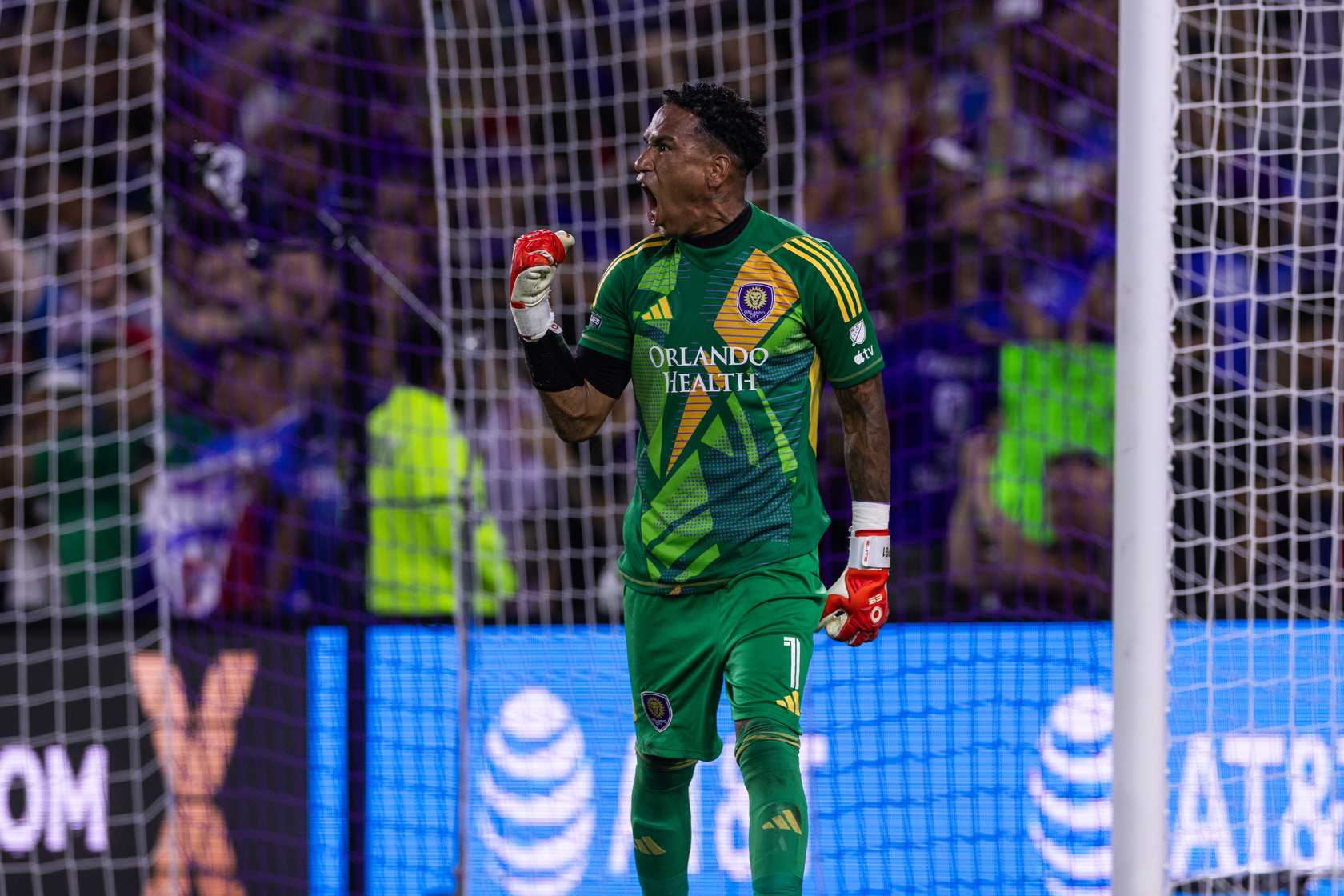
Happy Tuesday, everyone. It was a rough weekend for Orlando’s soccer teams, as all three sides came up short. Still, the only way out is up, and life goes on. That means that, as usual, we have plenty of things to talk over this morning, so let’s get into today’s links.
Orlando Pride Playoff Game Date Announced
There’s still one more game left to play in the NWSL regular season, but the Orlando Pride know when their quarterfinal matchup will take place. The Pride will host a quarterfinal match on Friday, Nov. 8 at 8 p.m against whichever team finishes eighth in the standings. As things currently stand, it would mean a matchup against Bay FC, although the Portland Thorns or Chicago Red Stars could each realistically drop into that spot. The Pride are undefeated against both Bay and Chicago this year, and have beaten Portland once, but also had the team’s undefeated streak ended by the Thorns two games ago.
Pedro Gallese Nominated for Save of the Year
Despite perhaps not hitting his usual heights, Pedro Gallese has still had a pretty good year between the sticks for Orlando City, and he’s been nominated for the Save of the Year to boot. The stop in question came during Orlando’s fifth match of the year on the road against Atlanta United. With OCSC trailing 1-0 on the stroke of halftime, the hosts whipped in a corner which Stian Gregersen met with a strong header down into the ground. Not only did El Pulpo claw it off the line, but he also managed to make a fantastic double save when Xande Silva sent the rebound back towards the goal. Make sure you take the time to vote for Gallese to win!
San Diego FC Announces Two 2025 Matches
San Diego FC will join MLS next season as the league’s newest franchise, and we now know who the team’s first two opponents will be. The expansion side gets an unenviable start to life in the league, as it will play its first game of the 2025 season on the road against the LA Galaxy on either Feb. 22 or 23. It will then play its first ever home match on March 1 against St. Louis City SC at Snapdragon Stadium in a battle of MLS’s two most recent expansion sides. San Diego will likely hope to emulate St. Louis City’s first season in the league, but probably won’t want a repeat of what the team did in 2024. The full league schedule is set to be announced in December, so we have to wait a while before seeing what the schedule holds for Orlando City.
Transfer Rumor Roundup
The transfer rumor mill never stops churning out new stories, and there are certainly some interesting items to examine today. First up is the report from Calciomercato that Manchester United forward Joshua Zirkzee is open to leaving the club during the January window, despite having only signed in July. Then, there’s Juventus needing to make a statement that it was hacked on Monday following a fake announcement that was made on its social media that the club had signed Arda Guler from Real Madrid. Virgil van Dijk has confirmed that he’s begun talks regarding signing a new deal with Liverpool, but also stressed that he does not know if he’ll remain at the club next season. Finally, Bayer Leverkusen is reportedly worried about head coach Xabi Alonso leaving the club for a bigger challenge, with Manchester City and Real Madrid both said to be interested.
Free Kicks
- Following two straight losses, the Orlando Pride slipped one place to second in ESPN‘s NWSL power rankings.
- The same outlet has Orlando City ranked eighth out of the 18 playoff teams in the MLS postseason field.
- Neymar has made his first appearance in over a year after tearing his ACL while playing for Al Hilal.
- A number of women’s soccer players have urged FIFA to end its partnership with Saudi Aramco, a Saudi Arabian oil and gas company.
- La Liga is reportedly pushing hard to hold a league match between Barcelona and Atletico Madrid in Miami.
That’s all I have for you this morning. Vamos Orlando!
Orlando City
Orlando City vs. Atlanta United: Player Grades and Man of the Match
How did your favorite Lions perform in Orlando City’s 2-1 home loss to Atlanta United?
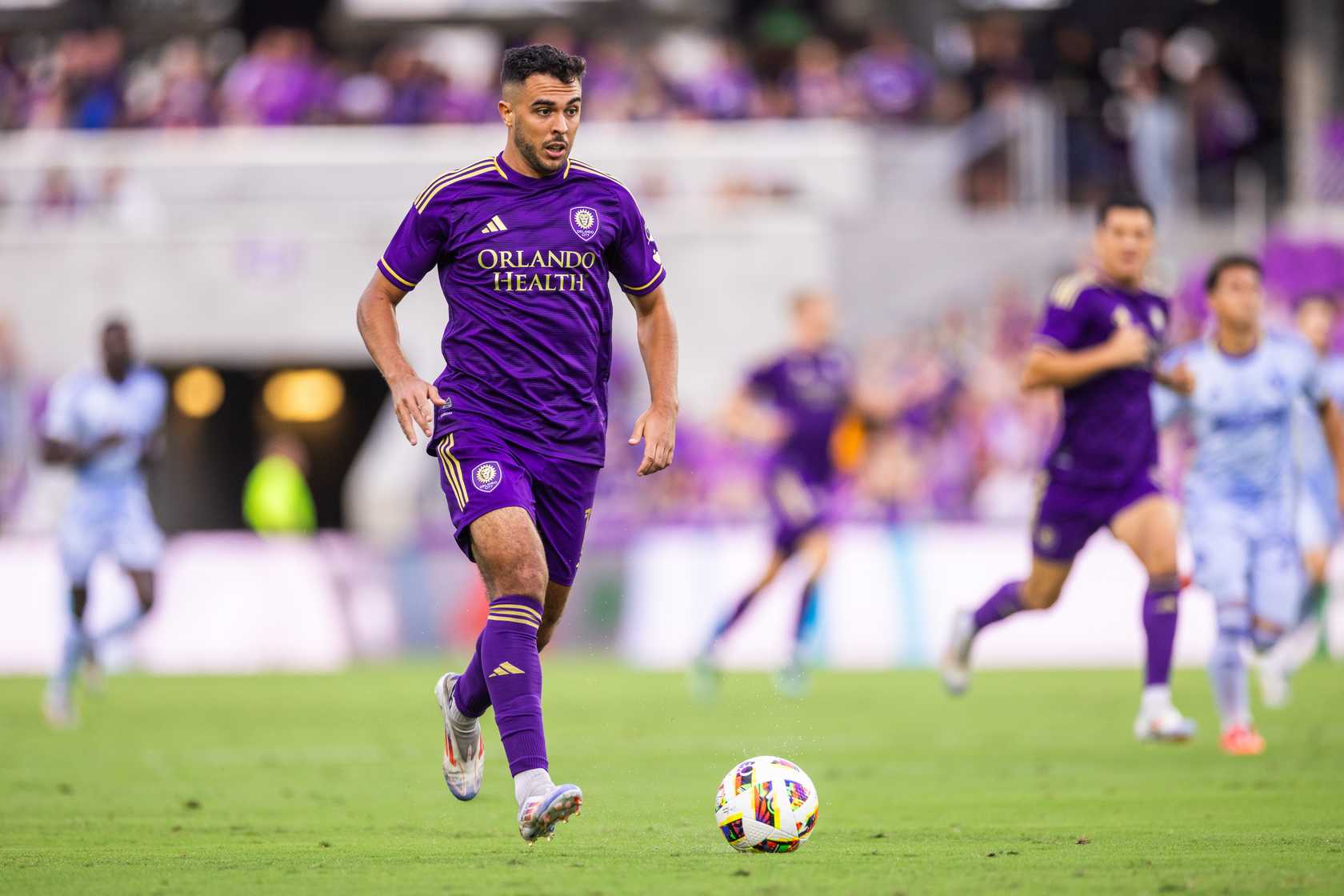
In a somewhat disappointing fashion, Orlando City closed out the 2024 Major League Soccer regular season at home with a 2-1 loss against rival Atlanta United. Following the most recent international break, Orlando City failed to recapture the form that had propelled the squad to three straight victories. After digging themselves an early two-goal hole, the Lions found a way to score before the half and then thought they’d equalized late, only for a Decision Day video review decision to go against them.
Let’s take a look at how Orlando City’s players rated individually in their matchup with Atlanta in the regular-season finale.
Starters
GK, Pedro Gallese, 6.5 — Atlanta attempted nine shots in the match and was able to put five on target. In a blink-and-you-will-miss-it type of start to the match, the visitors found the back of the net twice before the game was even 20 minutes old. It is hard to fault the Peruvian for either of the first two goals as the defense allowed Saba Lobjanidze to walk right through before slotting a ball past the keeper and then failed to mark properly on a ball that Gallese had already parried away from point-blank range, though he might have been able to grab it or control the rebound a bit better. The highlight of Gallese’s night came just seconds after halftime when Dagur Dan Thorhallsson committed a foul in the box. Gallese chose correctly and made a huge save on Atlanta’s penalty to keep it a one-goal game. The Peruvian international completed 11 of his 12 passes for a 91.7% completion rate, including four of five long balls attempted.
D, Rafael Santos, 6 — The match did not start well for Santos as he first conceded a corner that eventually led to Atlanta’s second goal, and then got caught ball-watching on the ensuing corner attempt, allowing Jamal Thiare to find the back of the net. He improved from there, leading the team with 110 touches while completing 68 of his 79 passes (86.1%) with three key passes. That included an assist on a good cross for Martin Ojeda’s header. Defensively, he recorded one interception, one clearance, and one tackle while winning a team-high four aerial duels. Offensively, Santos attempted one off-target shot and completed two successful dribbles.
D, Robin Jansson, 6.5 — The captain contributed a solid, if unspectacular, performance against a team that had been fairly anemic on offense down the stretch. He had 93 touches and completed 77 of his 83 passing attempts for a 92.8% rate, including six of eight long balls. On defense, he had one interception, a team-high four clearances, and a blocked shot. The Swede failed to contribute an offensive statistic against Atlanta.
D, Rodrigo Schlegel, 6 — Orlando fans know at this point that you have to take the good Schlegel with the bad Schlegel and unfortunately bad Schlegel showed up during the first Atlanta goal as he was caught flat-footed as Lobjanidze blew right by him. Aside from that, he was mainly solid in the match. Schlegel had 84 touches and won two aerials. He completed 78 of his 80 passes (97.5%), including eight of nine long balls. Defensively, he contributed one clearance while committing two fouls. He attempted one shot which was off target.
D, Dagur Dan Thorhallsson, 5.5 — Thorhallsson returned to the starting lineup after missing several matches and looked the part early of someone trying to get back up to speed and match fitness. Considering Atlanta had only scored four goals in the first 30 minutes of a match the whole season, Thorhallsson and company allowed the Five Stripes far too much daylight, resulting in a goal just a few minutes into the game. He had 64 touches and completed 45 of his 49 passes (91.8%), including one key pass. Thorhallsson was accurate on both of his long ball attempts but only logged one successful cross on four attempts. Defensively, he recorded a team-high three tackles and three clearances. Things could have gone sideways quickly for Orlando after the halftime break, as Thorhallsson was whistled for a foul in the box, resulting in an Atlanta penalty kick. He was subbed off in the 80th minute and will look to get his offensive rhythm back during training this week as he failed to record a shot.
MF, César Araujo, 6.5 — Missing his dynamic defensive partner, Wilder Cartagena, due to yellow card accumulation, Araujo was asked to do a little bit of everything against Atlanta and had an overall successful outing in front of the home crowd. He registered 107 touches and completed 81 of his 87 passes (93.1%). He tied Santos for the team lead in key passes with three and completed seven of his eight long ball attempts. He was unsuccessful on his lone crossing attempt. Defensively, he contributed one tackle, one interception, and three clearances. Offensively, Araujo was more involved than usual, logging two shots with one on target, and he was fouled a team-high five times.
MF, Felipe, 5 — Inserted for Cartagena due to his suspension, Felipe was also partly culpable on Atlanta’s first goal. The veteran from Brazil logged 47 touches in 52 minutes of action and completed 32 of his 38 passing attempts (84.2%), contributing two key passes. Felipe was unsuccessful in all three of his long ball attempts and defensively contributed one tackle and two interceptions. Offensively, Felipe recorded a shot but it failed to land on frame. He was subbed off in the 52nd minute for Kyle Smith.
MF, Iván Angulo, 6 — Angulo did not play badly but he was more invisible than usual. The key to the Colombian speedster’s game is to create chaos and to blow by opponents. Against Atlanta, Angulo failed to do much of that, but he also did not create egregious errors. Angulo logged 62 touches and completed 43 of his 48 passing attempts (89.6%) and mainly avoided some of the turnovers in his own half that have plagued him in recent games. He was credited with one key pass and one shot attempt that was off target. His cross turned into the McGuire goal that was overturned in the 89th minute. The season leader in minutes played went the full 90 once again and chipped in one tackle on defense.
MF, Martín Ojeda, 7.5 (MotM) — Ojeda was in full attack mode throughout the match and in my humble opinion was sacrificed far too early for how well he was playing. He scored Orlando’s lone goal in the 42nd minute with a glancing header and was credited with 56 touches. He completed 36 of his 39 passing attempts (92.3%), including two key passes. All three of his long ball attempts were successful and he completed one of his three crosses. Defensively, he failed to record a statistic but this match was all about Ojeda hunting his shot. The Argentine attacker led the team with eight total shots, four of which were on target, which was easily the best mark on the team. He might have had a hat trick had his right-footed attempts fallen instead for his preferred left foot. Ojeda picked up a yellow card in the 62nd minute — the only card shown to either team on the night — and was substituted out for Luis Muriel in the 68th minute of the match. With the way Ojeda was playing on offense, I would have much preferred that Muriel replace Angulo or Facundo Torres.
MF, Facundo Torres, 6 — With Ojeda hunting, fellow Designated Player Torres had an off night. He had 68 touches and completed 49 of his 56 passes (87.5%). Torres recorded one key pass, was unsuccessful on his lone cross, and completed one of his two long balls. Defensively, Torres failed to record a statistic, but he won three aerial duels. Offensively, he logged two shots, which were both off-target.
F, Ramiro Enrique, 5.5 — Enrique had a quiet night, logging only 18 touches which is simply not enough, considering the Lions were trailing essentially from the jump. He completed eight of his 10 passes (80%), including two key passes, and his lone shot attempt was on target. Defensively, Enrique did not contribute a statistic and was substituted off in the 68th minute for Duncan McGuire.
Substitutes
MF, Kyle Smith (52′), 6 — After starting much of the last month for the injured Thorhallsson, Smith started on the bench against Atlanta, replacing Felipe in the early moments of the second half. Smith had 49 touches as a substitute, and he completed 45 of his 47 passes (95.7%). He logged one tackle on the defensive end and did not contribute an offensive stat.
F, Duncan McGuire (68′), 6 — The second-year attacker thought he’d scored a late equalizer, in the 89th minute, but it was disallowed as referee Rubiel Vazquez ruled the ball had clearly hit his hand before he scored. McGuire had just six touches and completed two of his three passing attempts. Besides the overturned goal, McGuire recorded a shot on target.
MF, Luis Muriel (68’), 6 — Muriel entered the match for Ojeda with a little more than 20 minutes left in the match, and Orlando down a goal. He had 20 touches and completed 14 of his 17 attempts (82.4%), including two key passes, and was accurate on both of his long ball attempts. Muriel was credited with two successful dribbles but did not attempt a shot.
MF, Nicolas Lodeiro, (80’), N/A — Lodeiro entered the match late with Orlando hunting for the equalizer. He had 23 touches and completed 14 of his 18 passes (77.8%). Lodeiro attempted two shots, putting one on frame, and did not contribute a defensive statistic.
That’s how I saw the individual performances from the final match of the regular season. What did you think? Be sure to let us know in the comments, and vote in the poll below for your Orlando City Man of the Match.
Lion Links
Lion Links: 10/21/24
Orlando City and Orlando Pride lose, Orlando City B eliminated from playoffs, Seb Hines discusses diversity in soccer, and more.
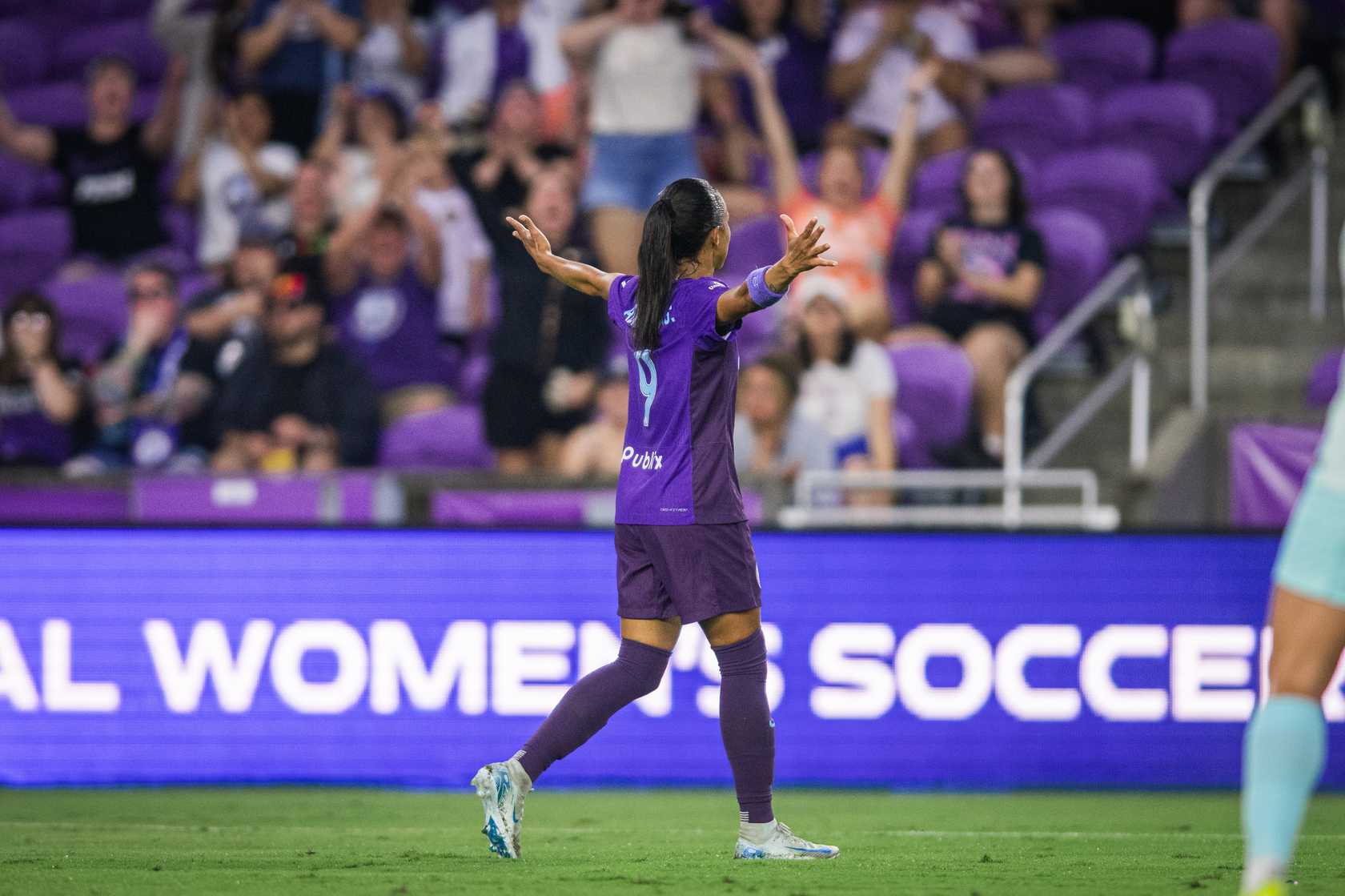
Hello, Mane Landers! I hope all is well with you down in Florida. I just finished setting up broadcasting for the NISA championship match in California over the weekend. This week, I’m back to staying busy at Under Armour and covering high school sports. It was a rough weekend for Orlando’s soccer teams, and we have plenty to cover today. Let’s get to the links!
Lions Fall to Atlanta United at Home on Decision Day
Orlando City fell 2-1 to Atlanta United on Saturday at Inter&Co Stadium on Decision Day. The Lions trailed 2-0 early in the first half before Martin Ojeda pulled one back for Orlando just before halftime. The Lions thought they had a late equalizer from Duncan McGuire, but the referee overturned the goal after a video review. The loss ended Orlando’s three-match winning streak, but it still clinched fourth place in the Eastern Conference as New York City FC lost to CF Montreal. Orlando’s next match will be in the first round of the MLS Cup Playoffs at home against Charlotte FC on Sunday.
Orlando Pride Lose to NJ/NY Gotham FC on the Road
The Orlando Pride lost their second straight match with a 3-1 defeat on the road to NJ/NY Gotham FC on Sunday at Red Bull Arena. The Pride were down 1-0 early in the first half before Adriana converted a penalty to tie things up. Gotham added two goals from Rose Lavelle and Ella Stevens to seal the victory and extend its unbeaten streak to seven matches. The Pride’s next game will be on Nov. 2 at home when they face the Seattle Reign in their final match of the regular season.
Seb Hines Speaks on Diversity in Soccer
BBC Sport interviewed Pride Head Coach Seb Hines after the club won its first NWSL Shield. Hines discussed how he’s helped reshape the club’s culture and advocates for more opportunities for black coaches in the sport alongside assistant coaches Giles Barnes and Yolanda Thomas.
“Being a trailblazer comes with a big responsibility because I want to advocate for more black coaches and diversity within the sport.
“It’s a responsibility to fight for more equality globally. It’s less about winning and more about breaking those barriers. I want to continue to give hope to others.”
Thomas, who joined the Pride’s coaching staff in 2023, also spoke on her passion to drive change and how she was inspired by former England manager Hope Powell.
OCB Eliminated from MLS NEXT Pro Playoffs
Orlando City B was eliminated from postseason play after losing 5-4 on penalties to Chicago Fire FC II following a 1-1 draw at SeatGeek Stadium in the MLS NEXT Pro playoffs . The Young Lions got off to a great start with a goal from Jack Lynn to take the lead in the first half. However, scored an equalizer just before halftime. After 90 minutes and extra time, the game went to penalties, where both teams exchanged goals until sudden death. OCB’s Favian Loyola missed his penalty, while Jean Diouf scored to send Chicago into the conference semifinals. OCB missed out on a chance to get its first postseason win and its 2024 season came to an end.
Orlando City and Pride Announce Hurricane Relief Efforts
Orlando City and the Pride announced hurricane relief effort plans over the weekend so fans can get involved and support those in need following Hurricane Helene and Hurricane Milton. The club also announced that the Wilf Family Foundations contributed $450,000 towards relief efforts, with $350,000 going to the American Red Cross and $100,000 to Heart of Florida United Way, a charity partner for the Pride.
Free Kicks
- Check out Orlando City’s hype video on social media leading up to its playoff match.
- Major League Soccer has reportedly not surpassed the needed number of MLS Season Pass subscriptions in its deal with Apple to trigger the revenue share agreement.
- Inter Miami forward Luis Suarez is reportedly in talks with the club about extending his contract.
- FIFA president Gianni Infantino announced that Inter Miami will play in the 2025 Club World Cup, joining the Seattle Sounders as the only MLS clubs in the competition. Miami will host the opening match at Hard Rock Stadium on July 15.
- Arsenal U-18 manager and former England midfielder Jack Wilshere is reportedly set to leave the club to join EFL Championship side Norwich City as its new manager.
That will do it for me today, Mane Landers. Enjoy your Monday and I’ll see you next time.
-
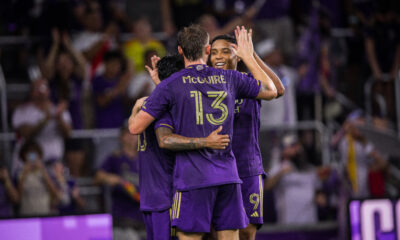
 Orlando City1 week ago
Orlando City1 week agoOrlando City Experiencing Its Golden Age of Offense
-
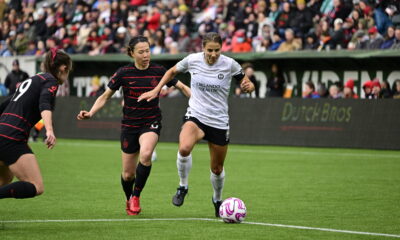
 Orlando Pride2 weeks ago
Orlando Pride2 weeks agoOrlando Pride vs. Portland Thorns FC: Preview, How to Watch, TV Info, Live Stream, Lineups, Match Thread, and More
-
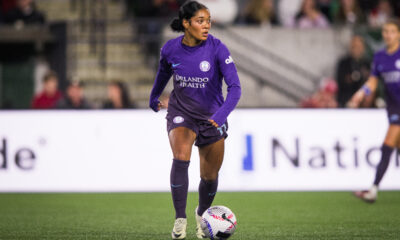
 Orlando Pride2 weeks ago
Orlando Pride2 weeks agoOrlando Pride vs. Portland Thorns FC: Final Score 2-0 as Pride’s Unbeaten Run Comes to an End
-
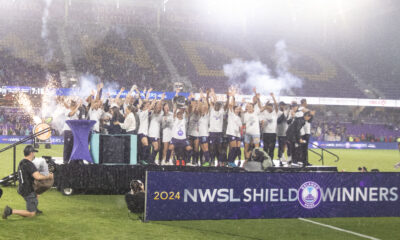
 Photo Galleries2 weeks ago
Photo Galleries2 weeks agoOrlando Pride vs. Washington Spirit: Photo Gallery
-
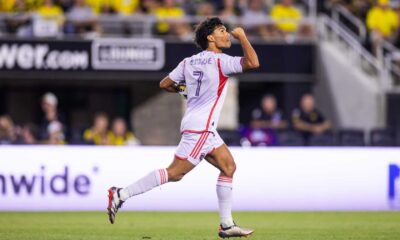
 Lion Links2 weeks ago
Lion Links2 weeks agoLion Links: 10/8/24
-

 Uncategorized2 weeks ago
Uncategorized2 weeks agoA Note About Hurricane Milton and The Mane Land
-
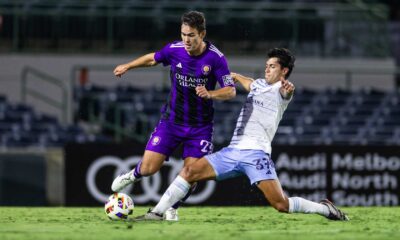
 Lion Links2 weeks ago
Lion Links2 weeks agoLion Links: 10/9/24
-
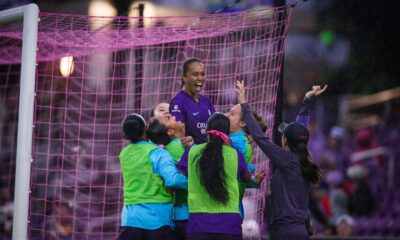
 Orlando Pride2 weeks ago
Orlando Pride2 weeks agoAnatomy of an Ascent: We Should Have Seen the Pride’s Improvement Coming




